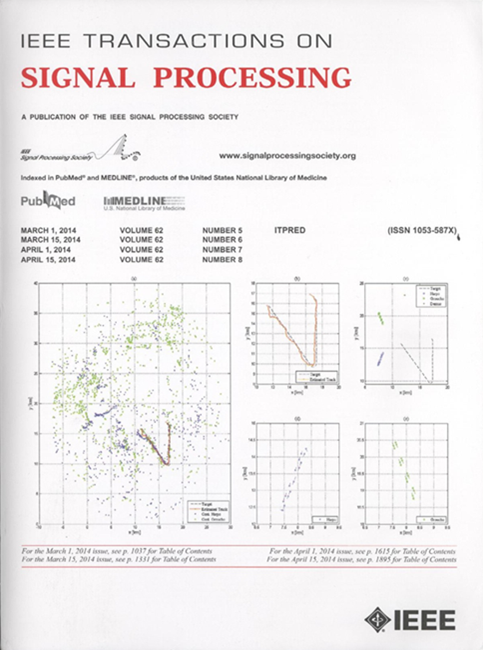Decentralized Learning Based on Gradient Coding With Compressed Communication
IF 4.6
2区 工程技术
Q1 ENGINEERING, ELECTRICAL & ELECTRONIC
引用次数: 0
Abstract
This paper considers the problem of基于梯度编码的分散学习与压缩通信
本文探讨了在通信瓶颈条件下有散兵的分散学习(DEL)问题。文献中已经提出了多种梯度编码技术,通过让设备根据冗余训练数据传输编码梯度,来实现有散兵的分布式学习。然而,由于 DEL 中缺乏全局模型,这些技术无法直接应用于本文所考虑的完全分散场景。为了克服这一缺陷,我们首先提出了一种新的基于梯度编码的流言式 DEL 方法(GOCO)。在 GOCO 中,为了减轻散兵游勇的负面影响,各设备在以流言方式平均之前,先用基于随机梯度编码的编码梯度更新参数向量。为了进一步减少与 GOCO 相关的通信开销,我们提出了 GOCO 的增强版本,即压缩通信 GOCO(2-GOCO),在该版本中,设备传输的是压缩信息,而不是原始参数矢量。针对强凸损失函数,分析了所提方法的收敛性。仿真结果表明,所提出的方法优于基线方法,后者在相同的通信开销下获得了更好的学习性能。
本文章由计算机程序翻译,如有差异,请以英文原文为准。
求助全文
约1分钟内获得全文
求助全文
来源期刊

IEEE Transactions on Signal Processing
工程技术-工程:电子与电气
CiteScore
11.20
自引率
9.30%
发文量
310
审稿时长
3.0 months
期刊介绍:
The IEEE Transactions on Signal Processing covers novel theory, algorithms, performance analyses and applications of techniques for the processing, understanding, learning, retrieval, mining, and extraction of information from signals. The term “signal” includes, among others, audio, video, speech, image, communication, geophysical, sonar, radar, medical and musical signals. Examples of topics of interest include, but are not limited to, information processing and the theory and application of filtering, coding, transmitting, estimating, detecting, analyzing, recognizing, synthesizing, recording, and reproducing signals.
 求助内容:
求助内容: 应助结果提醒方式:
应助结果提醒方式:


